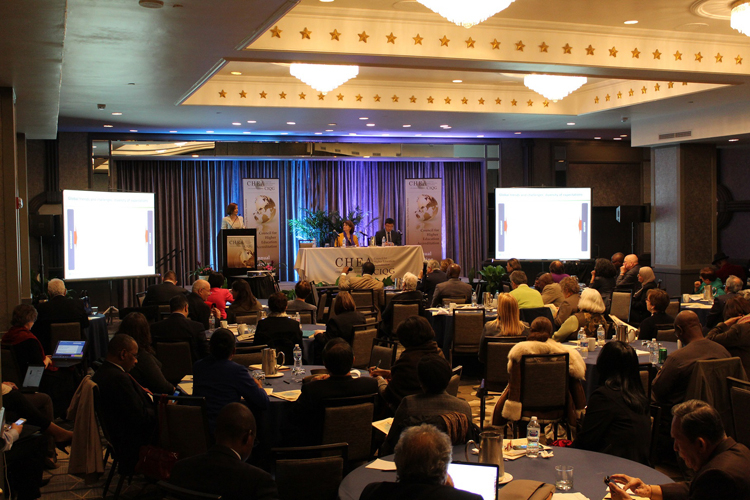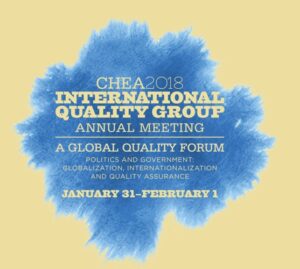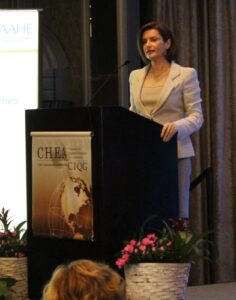Last week the United States-based Council for Higher Education Accreditation and the CHEA International Quality Group held their annual conference in Washington DC. INQAAHE was invited to contribute to the theme on the Current Interaction of Politics, Social Justice and Quality, The Role of Multilateralism. The panel presentation and discussions were chaired by the CHEA lead Senior Advisor Stamenka Uvalic-Trumbic, Senior Advisor and the INQAAHE President, Dr. Susanna Karakhanyan and Mr. Libing Wang, Chief of the Section for Educational Innovation and Skills Development at the UNESCO Asia-Pacific Regional Bureau for Education were the key note speakers for the panel.
The questions posed to the panel mainly evolved around UN Sustainable Development Goal 4 on Ensuring inclusive and equitable quality education for all and promote lifelong opportunities for all:
- Has there been a shift of emphasis by multilateral organisations to include a more prominent focus on social justice and equity in HE?
- What are the actual trends reflecting these approaches?
- What is the role of politics and its interaction with these trends?
INQAAHE’s contribution mainly evolved about the current expectations of the higher education key stakeholders and some proposals on the potential changes to the approaches of quality assurance to meet the expectations of the stakeholders were proposed by INQAAHE. The core business for QA, as summarized by Dr. Judith Eaton, the CHEA President, is a proposal to make a move towards a social dimension. As Dr. Karakhanyan mentioned the QA should gear towards supporting the HE providers in their efforts to link academia with the industry and, broader, socio-economic needs. Quality as Recognition of higher education outcomes and outputs was proposed as one of the solutions to the challenges posed.
PDF INQAAHE presentation at CHEA/CIQG event




